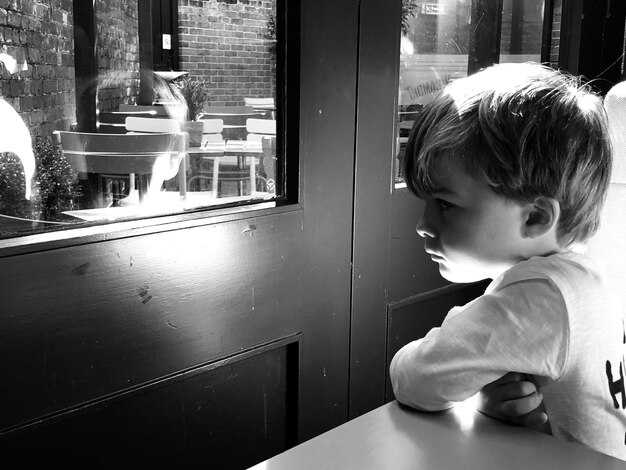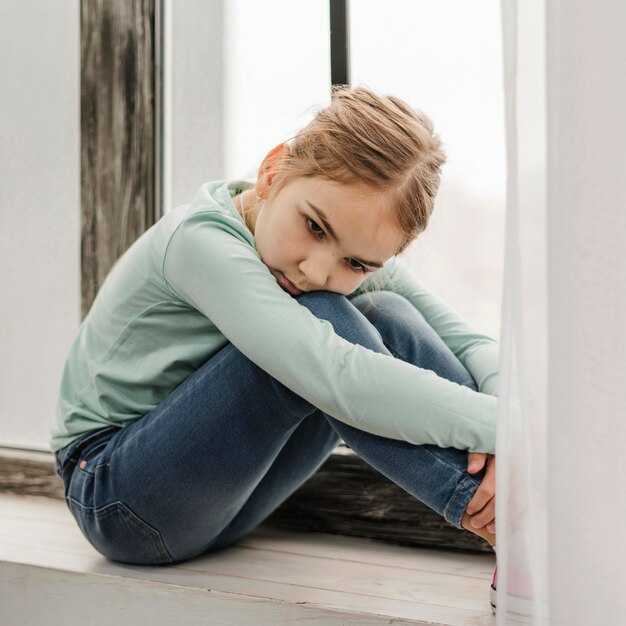Growing up in an environment marked by emotional neglect or cruelty trains your nervous system to respond by withdrawing. You stop crying. You stop protesting. You don’t flee. You retreat inward because that was the strategy that kept you alive. Later, when someone—even someone you care about—hurts you, that shutdown reflex reactivates. You go numb. You minimize it to yourself: “It can’t be that bad.” You wait for the feeling to pass, but it lingers—because the shutdown itself becomes the source of pain. Today’s letter comes from a woman I’ll call Kiana. She writes, “Hi, Anna. I have CPTTSD. I grew up in Jamaica where I can honestly say that my mother did the best she could as a single parent to raise me and my sister. I wouldn’t say I grew up in a two parent household because my father was just a presence in the house with hardly any interactions with me or my sister. All right, I’ve got my fairy pencil. I’m going to go through and circle things that I want to come back to on a second reading. But first, let’s go through and see what’s happening in Kiana’s life here. Relationships have been difficult for me. I’m 42 years old and I don’t think I’ve ever been in a genuine and true love relationship. I’m a nurse by profession, so I’m fortunate enough to be able to provide for myself and my one daughter. However, I have past and present trauma from relationships that significantly affects me. I find that I always attach to men who are either unavailable, have commitment issues, or lack emotional intelligence. As you said, it’s not who I attract, but who I give attention to, Kiana says, and that is something that I say. Nine years ago, I was diagnosed with an autoimmune disease that I believe greatly developed because of my CPTTSD. I’m managing it well, but it has flare-ups from time to time due to working in a stressful environment, trauma, and life stressors. That’s true. I’ve been in a four-year relationship with a man who has consistently given me his worst self. >> That’s an interesting way to put it. We’ve had numerous arguments, conflicts, and misunderstandings. And recently he told me that he hasn’t been giving me his best self for the entire duration of our relationship. When I tried to challenge him to improve our relationship, he turned the tables and made it seem like I was the problem. Things have been difficult since that discussion. It’s made me question my own worth and brought about feelings of self-doubt and resentment toward him and myself for allowing him to treat me this way. I feel so broken. However, he lacks the ability to communicate effectively and only engages in surface level conversations. He keeps telling me he loves me, but his actions often show otherwise. There have been instances of disrespect on his part and situations where he hasn’t established boundaries with his child’s mother, which has led to conflicts between him and me. Deep down, I don’t believe he’s the right person for me. But it’s hard for me to let go. I feel unsettled and convicted in my spirit, but I still struggle to come to terms with ending our relationship. My main reason for writing this letter is that whatever whenever we have disagreements, I shut down, and this can go on for months. The last time we stopped talking for 8 months, we reconnected again after his brother made a three-way call with both of us. And during that phone call, he expressed how much he missed me. I asked him why he hadn’t reached out sooner, and he said I had told him I needed time. Anna, this isn’t the first, second, or third time we’ve taken a break, and I’m always the one who reaches out to have discussions or rekindle our relationship. I’ve always noticed that shutting down when there’s conflict is an emotional response that also occurred in my previous relationship, which involved infidelity and eventually became toxic. I’m afraid this habit might resurface even after I’ve healed and found my true love. I genuinely don’t want this to be a reason to push the right person away as I’ve ruined my best relationship due to intense emotions and unresolved trauma. How can I express my feelings without feeling overwhelmed and shutting down? Is this a trauma response on my part? Or is it that the recipient lacks understanding or does not know how to acknowledge and support me during such a challenging time, which causes me to shut down. I’m deeply concerned about this issue and would greatly appreciate your feedback.” Thank you, Kiana. I feel for you. Let’s unpack what you shared. You’ve learned to be the resilient one, and while strength serves you—it’s why you trained as a nurse and can provide for yourself and your daughter—there are costs to always wearing that armor. Children in traumatic families often adopt certain roles; being the “strong” child can mean excusing or rationalizing a caregiver’s failures. You try to understand and forgive your mother, telling yourself she did the best she could. That impulse to protect and explain is compassionate, but it can also short-circuit honest reckoning with the harm you endured and the betrayals you carried alone. Imagine a small child being abused by relatives and believing she can’t tell the adults who are supposed to protect her—what must it take for a child to conclude that silence is safer than speaking? It’s devastating. I know that loneliness well: surviving abuse is one violation, but having to handle it without support is a second traumatic wound. You waited decades to tell someone—you finally told your sister two years ago at age 40—and learned she had the same experience. I’m sorry you both endured that without each other back then; it’s a relief that you now have that shared knowledge. Given that background, it’s not surprising relationships have been fraught. Trauma in childhood leaves a hunger for love, connection, companionship and yet builds internal barriers that steer us toward choices that don’t meet those needs. We weren’t taught to notice or value healthy attachments; sometimes our perception was actively dulled. In families where abuse is widespread and parents either don’t see or can’t process it, kids commonly hide what’s happening. If an adult had come alongside you and asked, “Is something wrong? You can tell me,” and then become a safe advocate, it would have made an enormous difference. That validation—that you didn’t do anything wrong and that someone was watching over you—was denied to you. So your pattern of shutting down makes absolute sense. When a child must survive in a dangerous household, freezing is often the most practical response. Hiding kept the focus off you when you were unsure whether shame or safety belonged to you. The important truth now is that you are beginning to come out of hiding. That’s a major, courageous development. You said you’re drawn to men who are emotionally unavailable, avoid commitment, or lack emotional insight. Patterns like that persist for reasons: sometimes the half-hearted love of those partners is easier to tolerate because it doesn’t demand the fuller presence or accountability you may not yet trust you can give. Early wounds make attachment rapid and intense; the fear of abandonment can make leaving feel existentially dangerous—threatening your ability to function at work or school—so you stay and do your best to survive. Over time, some of us are forced out of those relationships and then find the freedom we needed; others intentionally choose to step away. Both routes can lead to growth. Your tendency to shut down protected you once, and you can honor that by recognizing it kept you safe. Now you’re learning to re-engage, express yourself, and remain present—skills that will reveal unacceptable behaviors in others and push you toward better choices. At 42 you bring life experience, responsibilities, and a clearer sense of what you won’t tolerate. You mentioned an autoimmune diagnosis nine years ago that you believe is linked to your trauma. Chronic stress certainly fuels autoimmune flares. That’s real and serious. Living with ongoing stress is damaging; it’s why stress-management techniques are so essential, especially when unresolved trauma and relationship drama create repeated strain. If you’re wondering whether your childhood trauma is showing up in your present-day symptoms and relationship patterns, there are common signs to look for. There’s a quiz I provide that lists many indicators of how past trauma can affect current relationships—you can find it in the first link under the video description. It’s not a diagnostic test but a symptom checklist you may recognize. Regarding your four-year relationship, you describe him as offering his “worst self” rather than his best. A healthy partnership generally involves sharing your best qualities with one another—the warmth, generosity, companionship reserved for your intimate connection. When someone repeatedly gives you their worst, it erodes the relationship’s foundation. You say he recently admitted he hasn’t given his best for the entire relationship. That kind of statement can be a euphemism for deeper issues—infidelity, deceit, or emotional withdrawal—but taking your words at face value, this admission followed by him blaming you when you asked for change is telling. When a couple can imagine a future, asking to work on the relationship is a constructive move. If the other person responds by labeling you as the problem, that’s a red flag. Your anguish—questioning your worth, feeling resentful at being treated this way, feeling broken—is your spirit signaling that this dynamic is damaging. Often, when trauma drives attachment choices, people create narratives to justify staying in toxic patterns, then become bewildered when it’s time to act. If your partner refuses to engage in mutual work, there’s little you can do to repair the relationship alone. You’re left with a choice: accept a pattern that constantly hurts you, or leave. You told me deep down you don’t think he’s right for you, yet you struggle to let go. I recognize that. Ending a long relationship can be done without spectacle—you don’t need to wait for a dramatic crisis to make a clean break. If safety is a concern, plan for firm boundaries: consider the logistics of moving out, protect your daughter’s stability, and avoid leaving the door open to ongoing contact like “let’s be friends” if your attachment wounds make closure difficult. Tell him gently but clearly that you’re ending things; allow a brief conversation for closure and then maintain the boundary. Expect a withdrawal period after separation. Even from an unsatisfying relationship, your body may react as if you’re going through drug withdrawal: fatigue, somatic aches, waves of sadness. Before you end the relationship, arrange supports—friends, small pleasures, a short trip, a healthier routine like daily walks or improved meals—and involve your daughter in positive changes where possible. Those actions will help steady you through the immediate heartache and reinforce that you’re making space for a healthier future. Remember: making roomy space in your life is the precondition for inviting a partner who can love the real, unguarded you. True intimacy cannot flourish when you’re chronically shut down; people can’t fall in love with a person they can’t fully meet. When you allow your authentic self to show, even in small everyday moments, you’ll attract partners who are drawn to who you truly are rather than to a constrained version of you. I hear your tendency to excuse your mother—”she did the best she could”—and I understand that compassion. Trauma can limit a parent’s capacity, but that doesn’t make the harm acceptable. It was not okay that no one protected you. Childhood sexual abuse is a grievous violation, and you deserved adults who would keep you safe. You did nothing to cause it. You are worthy and whole despite what happened, and you’re now taking steps to leave a relationship that diminishes you and to open space for something better. Besides the trauma-relationship quiz, there’s a practical download I recommend: a guide for preparing yourself for a healthy relationship. It outlines areas of life to strengthen while you move out of this relationship. Save it, review it when you’re ready, and use it as a roadmap to develop qualities that will support a more nourishing partnership in the future. If this resonates, there’s another video that expands on these ideas. Finally, I want to close with an image you used: you felt chased by something you named a pack of wolves—though they weren’t literal wolves, they were emotions, usually sadness, coming to overwhelm you.
 > That’s an interesting way to put it. We’ve had numerous arguments, conflicts, and misunderstandings. And recently he told me that he hasn’t been giving me his best self for the entire duration of our relationship. When I tried to challenge him to improve our relationship, he turned the tables and made it seem like I was the problem. Things have been difficult since that discussion. It’s made me question my own worth and brought about feelings of self-doubt and resentment toward him and myself for allowing him to treat me this way. I feel so broken. However, he lacks the ability to communicate effectively and only engages in surface level conversations. He keeps telling me he loves me, but his actions often show otherwise. There have been instances of disrespect on his part and situations where he hasn’t established boundaries with his child’s mother, which has led to conflicts between him and me. Deep down, I don’t believe he’s the right person for me. But it’s hard for me to let go. I feel unsettled and convicted in my spirit, but I still struggle to come to terms with ending our relationship. My main reason for writing this letter is that whatever whenever we have disagreements, I shut down, and this can go on for months. The last time we stopped talking for 8 months, we reconnected again after his brother made a three-way call with both of us. And during that phone call, he expressed how much he missed me. I asked him why he hadn’t reached out sooner, and he said I had told him I needed time. Anna, this isn’t the first, second, or third time we’ve taken a break, and I’m always the one who reaches out to have discussions or rekindle our relationship. I’ve always noticed that shutting down when there’s conflict is an emotional response that also occurred in my previous relationship, which involved infidelity and eventually became toxic. I’m afraid this habit might resurface even after I’ve healed and found my true love. I genuinely don’t want this to be a reason to push the right person away as I’ve ruined my best relationship due to intense emotions and unresolved trauma. How can I express my feelings without feeling overwhelmed and shutting down? Is this a trauma response on my part? Or is it that the recipient lacks understanding or does not know how to acknowledge and support me during such a challenging time, which causes me to shut down. I’m deeply concerned about this issue and would greatly appreciate your feedback.” Thank you, Kiana. I feel for you. Let’s unpack what you shared. You’ve learned to be the resilient one, and while strength serves you—it’s why you trained as a nurse and can provide for yourself and your daughter—there are costs to always wearing that armor. Children in traumatic families often adopt certain roles; being the “strong” child can mean excusing or rationalizing a caregiver’s failures. You try to understand and forgive your mother, telling yourself she did the best she could. That impulse to protect and explain is compassionate, but it can also short-circuit honest reckoning with the harm you endured and the betrayals you carried alone. Imagine a small child being abused by relatives and believing she can’t tell the adults who are supposed to protect her—what must it take for a child to conclude that silence is safer than speaking? It’s devastating. I know that loneliness well: surviving abuse is one violation, but having to handle it without support is a second traumatic wound. You waited decades to tell someone—you finally told your sister two years ago at age 40—and learned she had the same experience. I’m sorry you both endured that without each other back then; it’s a relief that you now have that shared knowledge. Given that background, it’s not surprising relationships have been fraught. Trauma in childhood leaves a hunger for love, connection, companionship and yet builds internal barriers that steer us toward choices that don’t meet those needs. We weren’t taught to notice or value healthy attachments; sometimes our perception was actively dulled. In families where abuse is widespread and parents either don’t see or can’t process it, kids commonly hide what’s happening. If an adult had come alongside you and asked, “Is something wrong? You can tell me,” and then become a safe advocate, it would have made an enormous difference. That validation—that you didn’t do anything wrong and that someone was watching over you—was denied to you. So your pattern of shutting down makes absolute sense. When a child must survive in a dangerous household, freezing is often the most practical response. Hiding kept the focus off you when you were unsure whether shame or safety belonged to you. The important truth now is that you are beginning to come out of hiding. That’s a major, courageous development. You said you’re drawn to men who are emotionally unavailable, avoid commitment, or lack emotional insight. Patterns like that persist for reasons: sometimes the half-hearted love of those partners is easier to tolerate because it doesn’t demand the fuller presence or accountability you may not yet trust you can give. Early wounds make attachment rapid and intense; the fear of abandonment can make leaving feel existentially dangerous—threatening your ability to function at work or school—so you stay and do your best to survive. Over time, some of us are forced out of those relationships and then find the freedom we needed; others intentionally choose to step away. Both routes can lead to growth. Your tendency to shut down protected you once, and you can honor that by recognizing it kept you safe. Now you’re learning to re-engage, express yourself, and remain present—skills that will reveal unacceptable behaviors in others and push you toward better choices. At 42 you bring life experience, responsibilities, and a clearer sense of what you won’t tolerate. You mentioned an autoimmune diagnosis nine years ago that you believe is linked to your trauma. Chronic stress certainly fuels autoimmune flares. That’s real and serious. Living with ongoing stress is damaging; it’s why stress-management techniques are so essential, especially when unresolved trauma and relationship drama create repeated strain. If you’re wondering whether your childhood trauma is showing up in your present-day symptoms and relationship patterns, there are common signs to look for. There’s a quiz I provide that lists many indicators of how past trauma can affect current relationships—you can find it in the first link under the video description. It’s not a diagnostic test but a symptom checklist you may recognize. Regarding your four-year relationship, you describe him as offering his “worst self” rather than his best. A healthy partnership generally involves sharing your best qualities with one another—the warmth, generosity, companionship reserved for your intimate connection. When someone repeatedly gives you their worst, it erodes the relationship’s foundation. You say he recently admitted he hasn’t given his best for the entire relationship. That kind of statement can be a euphemism for deeper issues—infidelity, deceit, or emotional withdrawal—but taking your words at face value, this admission followed by him blaming you when you asked for change is telling. When a couple can imagine a future, asking to work on the relationship is a constructive move. If the other person responds by labeling you as the problem, that’s a red flag. Your anguish—questioning your worth, feeling resentful at being treated this way, feeling broken—is your spirit signaling that this dynamic is damaging. Often, when trauma drives attachment choices, people create narratives to justify staying in toxic patterns, then become bewildered when it’s time to act. If your partner refuses to engage in mutual work, there’s little you can do to repair the relationship alone. You’re left with a choice: accept a pattern that constantly hurts you, or leave. You told me deep down you don’t think he’s right for you, yet you struggle to let go. I recognize that. Ending a long relationship can be done without spectacle—you don’t need to wait for a dramatic crisis to make a clean break. If safety is a concern, plan for firm boundaries: consider the logistics of moving out, protect your daughter’s stability, and avoid leaving the door open to ongoing contact like “let’s be friends” if your attachment wounds make closure difficult. Tell him gently but clearly that you’re ending things; allow a brief conversation for closure and then maintain the boundary. Expect a withdrawal period after separation. Even from an unsatisfying relationship, your body may react as if you’re going through drug withdrawal: fatigue, somatic aches, waves of sadness. Before you end the relationship, arrange supports—friends, small pleasures, a short trip, a healthier routine like daily walks or improved meals—and involve your daughter in positive changes where possible. Those actions will help steady you through the immediate heartache and reinforce that you’re making space for a healthier future. Remember: making roomy space in your life is the precondition for inviting a partner who can love the real, unguarded you. True intimacy cannot flourish when you’re chronically shut down; people can’t fall in love with a person they can’t fully meet. When you allow your authentic self to show, even in small everyday moments, you’ll attract partners who are drawn to who you truly are rather than to a constrained version of you. I hear your tendency to excuse your mother—”she did the best she could”—and I understand that compassion. Trauma can limit a parent’s capacity, but that doesn’t make the harm acceptable. It was not okay that no one protected you. Childhood sexual abuse is a grievous violation, and you deserved adults who would keep you safe. You did nothing to cause it. You are worthy and whole despite what happened, and you’re now taking steps to leave a relationship that diminishes you and to open space for something better. Besides the trauma-relationship quiz, there’s a practical download I recommend: a guide for preparing yourself for a healthy relationship. It outlines areas of life to strengthen while you move out of this relationship. Save it, review it when you’re ready, and use it as a roadmap to develop qualities that will support a more nourishing partnership in the future. If this resonates, there’s another video that expands on these ideas. Finally, I want to close with an image you used: you felt chased by something you named a pack of wolves—though they weren’t literal wolves, they were emotions, usually sadness, coming to overwhelm you.”>
> That’s an interesting way to put it. We’ve had numerous arguments, conflicts, and misunderstandings. And recently he told me that he hasn’t been giving me his best self for the entire duration of our relationship. When I tried to challenge him to improve our relationship, he turned the tables and made it seem like I was the problem. Things have been difficult since that discussion. It’s made me question my own worth and brought about feelings of self-doubt and resentment toward him and myself for allowing him to treat me this way. I feel so broken. However, he lacks the ability to communicate effectively and only engages in surface level conversations. He keeps telling me he loves me, but his actions often show otherwise. There have been instances of disrespect on his part and situations where he hasn’t established boundaries with his child’s mother, which has led to conflicts between him and me. Deep down, I don’t believe he’s the right person for me. But it’s hard for me to let go. I feel unsettled and convicted in my spirit, but I still struggle to come to terms with ending our relationship. My main reason for writing this letter is that whatever whenever we have disagreements, I shut down, and this can go on for months. The last time we stopped talking for 8 months, we reconnected again after his brother made a three-way call with both of us. And during that phone call, he expressed how much he missed me. I asked him why he hadn’t reached out sooner, and he said I had told him I needed time. Anna, this isn’t the first, second, or third time we’ve taken a break, and I’m always the one who reaches out to have discussions or rekindle our relationship. I’ve always noticed that shutting down when there’s conflict is an emotional response that also occurred in my previous relationship, which involved infidelity and eventually became toxic. I’m afraid this habit might resurface even after I’ve healed and found my true love. I genuinely don’t want this to be a reason to push the right person away as I’ve ruined my best relationship due to intense emotions and unresolved trauma. How can I express my feelings without feeling overwhelmed and shutting down? Is this a trauma response on my part? Or is it that the recipient lacks understanding or does not know how to acknowledge and support me during such a challenging time, which causes me to shut down. I’m deeply concerned about this issue and would greatly appreciate your feedback.” Thank you, Kiana. I feel for you. Let’s unpack what you shared. You’ve learned to be the resilient one, and while strength serves you—it’s why you trained as a nurse and can provide for yourself and your daughter—there are costs to always wearing that armor. Children in traumatic families often adopt certain roles; being the “strong” child can mean excusing or rationalizing a caregiver’s failures. You try to understand and forgive your mother, telling yourself she did the best she could. That impulse to protect and explain is compassionate, but it can also short-circuit honest reckoning with the harm you endured and the betrayals you carried alone. Imagine a small child being abused by relatives and believing she can’t tell the adults who are supposed to protect her—what must it take for a child to conclude that silence is safer than speaking? It’s devastating. I know that loneliness well: surviving abuse is one violation, but having to handle it without support is a second traumatic wound. You waited decades to tell someone—you finally told your sister two years ago at age 40—and learned she had the same experience. I’m sorry you both endured that without each other back then; it’s a relief that you now have that shared knowledge. Given that background, it’s not surprising relationships have been fraught. Trauma in childhood leaves a hunger for love, connection, companionship and yet builds internal barriers that steer us toward choices that don’t meet those needs. We weren’t taught to notice or value healthy attachments; sometimes our perception was actively dulled. In families where abuse is widespread and parents either don’t see or can’t process it, kids commonly hide what’s happening. If an adult had come alongside you and asked, “Is something wrong? You can tell me,” and then become a safe advocate, it would have made an enormous difference. That validation—that you didn’t do anything wrong and that someone was watching over you—was denied to you. So your pattern of shutting down makes absolute sense. When a child must survive in a dangerous household, freezing is often the most practical response. Hiding kept the focus off you when you were unsure whether shame or safety belonged to you. The important truth now is that you are beginning to come out of hiding. That’s a major, courageous development. You said you’re drawn to men who are emotionally unavailable, avoid commitment, or lack emotional insight. Patterns like that persist for reasons: sometimes the half-hearted love of those partners is easier to tolerate because it doesn’t demand the fuller presence or accountability you may not yet trust you can give. Early wounds make attachment rapid and intense; the fear of abandonment can make leaving feel existentially dangerous—threatening your ability to function at work or school—so you stay and do your best to survive. Over time, some of us are forced out of those relationships and then find the freedom we needed; others intentionally choose to step away. Both routes can lead to growth. Your tendency to shut down protected you once, and you can honor that by recognizing it kept you safe. Now you’re learning to re-engage, express yourself, and remain present—skills that will reveal unacceptable behaviors in others and push you toward better choices. At 42 you bring life experience, responsibilities, and a clearer sense of what you won’t tolerate. You mentioned an autoimmune diagnosis nine years ago that you believe is linked to your trauma. Chronic stress certainly fuels autoimmune flares. That’s real and serious. Living with ongoing stress is damaging; it’s why stress-management techniques are so essential, especially when unresolved trauma and relationship drama create repeated strain. If you’re wondering whether your childhood trauma is showing up in your present-day symptoms and relationship patterns, there are common signs to look for. There’s a quiz I provide that lists many indicators of how past trauma can affect current relationships—you can find it in the first link under the video description. It’s not a diagnostic test but a symptom checklist you may recognize. Regarding your four-year relationship, you describe him as offering his “worst self” rather than his best. A healthy partnership generally involves sharing your best qualities with one another—the warmth, generosity, companionship reserved for your intimate connection. When someone repeatedly gives you their worst, it erodes the relationship’s foundation. You say he recently admitted he hasn’t given his best for the entire relationship. That kind of statement can be a euphemism for deeper issues—infidelity, deceit, or emotional withdrawal—but taking your words at face value, this admission followed by him blaming you when you asked for change is telling. When a couple can imagine a future, asking to work on the relationship is a constructive move. If the other person responds by labeling you as the problem, that’s a red flag. Your anguish—questioning your worth, feeling resentful at being treated this way, feeling broken—is your spirit signaling that this dynamic is damaging. Often, when trauma drives attachment choices, people create narratives to justify staying in toxic patterns, then become bewildered when it’s time to act. If your partner refuses to engage in mutual work, there’s little you can do to repair the relationship alone. You’re left with a choice: accept a pattern that constantly hurts you, or leave. You told me deep down you don’t think he’s right for you, yet you struggle to let go. I recognize that. Ending a long relationship can be done without spectacle—you don’t need to wait for a dramatic crisis to make a clean break. If safety is a concern, plan for firm boundaries: consider the logistics of moving out, protect your daughter’s stability, and avoid leaving the door open to ongoing contact like “let’s be friends” if your attachment wounds make closure difficult. Tell him gently but clearly that you’re ending things; allow a brief conversation for closure and then maintain the boundary. Expect a withdrawal period after separation. Even from an unsatisfying relationship, your body may react as if you’re going through drug withdrawal: fatigue, somatic aches, waves of sadness. Before you end the relationship, arrange supports—friends, small pleasures, a short trip, a healthier routine like daily walks or improved meals—and involve your daughter in positive changes where possible. Those actions will help steady you through the immediate heartache and reinforce that you’re making space for a healthier future. Remember: making roomy space in your life is the precondition for inviting a partner who can love the real, unguarded you. True intimacy cannot flourish when you’re chronically shut down; people can’t fall in love with a person they can’t fully meet. When you allow your authentic self to show, even in small everyday moments, you’ll attract partners who are drawn to who you truly are rather than to a constrained version of you. I hear your tendency to excuse your mother—”she did the best she could”—and I understand that compassion. Trauma can limit a parent’s capacity, but that doesn’t make the harm acceptable. It was not okay that no one protected you. Childhood sexual abuse is a grievous violation, and you deserved adults who would keep you safe. You did nothing to cause it. You are worthy and whole despite what happened, and you’re now taking steps to leave a relationship that diminishes you and to open space for something better. Besides the trauma-relationship quiz, there’s a practical download I recommend: a guide for preparing yourself for a healthy relationship. It outlines areas of life to strengthen while you move out of this relationship. Save it, review it when you’re ready, and use it as a roadmap to develop qualities that will support a more nourishing partnership in the future. If this resonates, there’s another video that expands on these ideas. Finally, I want to close with an image you used: you felt chased by something you named a pack of wolves—though they weren’t literal wolves, they were emotions, usually sadness, coming to overwhelm you.”>


 The Childhood Reason You Still Feel Empty Inside">
The Childhood Reason You Still Feel Empty Inside">

 The Innocent Words That Trigger Trauma Symptoms (And No One Realizes)">
The Innocent Words That Trigger Trauma Symptoms (And No One Realizes)">
 You will Keep Attracting Narcissistic Partners until you do THIS">
You will Keep Attracting Narcissistic Partners until you do THIS">
 Why Long Distance, Unavailable People Feel Like Your True Love">
Why Long Distance, Unavailable People Feel Like Your True Love">
 The SECRET to Turning Conflict back into Connection">
The SECRET to Turning Conflict back into Connection">
 How to STOP Fighting in your Relationship!">
How to STOP Fighting in your Relationship!">
 LOVE won’t be enough to SAVE your Relationship!">
LOVE won’t be enough to SAVE your Relationship!">
 Relationships Can’t Survive without THIS">
Relationships Can’t Survive without THIS">
 The Exact Price Avoidants Pay For Losing You.">
The Exact Price Avoidants Pay For Losing You.">
 How to Handle Difficult & Toxic People – Take Back Your Peace and Power">
How to Handle Difficult & Toxic People – Take Back Your Peace and Power">
 Childhood Trauma and Self-Defeating Behavior">
Childhood Trauma and Self-Defeating Behavior">